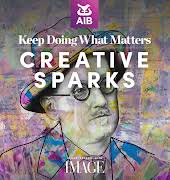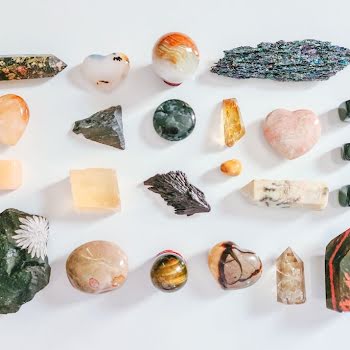
The rise of the narcissist and how to recognise the signs within close relationships
We are in the midst of a narcissism epidemic, according to psychologists. But is it any surprise given that we are living in an age of entitlement and appearance-driven glory? Amanda Cassidy on the science behind the narcissistic personality.
It’s more than just being self-absorbed. Narcissism is a mental health condition characterised by an inflated sense of importance, a deep need for excessive attention and admiration, and a lack of empathy for others.
It is a spectrum with differing extremes but usually what it boils down to, according to psychologists, is selfishness at the expense of others, as well as the inability to consider other’s feelings whatsoever.
And it is on the rise.
Why is less clear. The rise in self-confidence and self-esteem has sometimes been mistaken for narcissism and while they are linked, this type of self-importance isn’t damaging to others.
Most recent data shows that both include positive self-evaluations, but the entitlement, exploitation, and negative view of others doesn’t always go hand in hand.
As a society, we are more focused on the individual – books for example feature more self-centred language. The use of I and me are used more frequently than we and us.
Popular culture seems to focus on the idea of the ‘self’ being paramount – this gives credibility to fame and the elevation of the individual across songs, social media, celebrity.
Grandiose
“Narcissists see themselves as superior to others, so why lie about it?”
A recent study found that with one question, researchers could spot someone with this personality disorder. They verified the results by comparing them to the current method of diagnosis – the NPI or Narcissistic Personality Inventory. They asked the following question; “To what extent do you agree with this statement: “I am a narcissist.” They even added a note for clarity. (Note: The word ‘narcissist’ means egotistical, self-focused, and vain).
The results concluded that those who scored as narcissists on the NPI also scored high in response to the question. Brad Mushman who authored the study said that because narcissists see themselves as superior to others, why lie about it? “People who are willing to admit they are more narcissistic than others probably are more narcissistic.” In other words, they are proud of it.
The nine official criteria for NPI are as follows according to the Diagnostic and Statistical Manual of Mental Disorders. Interestingly, one only has to demonstrate five out of the nine to clinically qualify as a narcissist.
- Grandiose sense of self-importance
- Preoccupation with fantasies of unlimited success, power, brilliance, beauty, or ideal love
- The belief they’re special and unique and can only be understood by, or should associate with, other special or high-status people or institutions
- Need for excessive admiration
- Sense of entitlement
- Interpersonally exploitative behaviour
- Lack of empathy
- Envy of others or a belief that others are envious of them
- Demonstration of arrogant and haughty behaviours or attitudes
Toxic
“I own this house so you have to do as I say. You’d be nothing without me. You only achieved x, y, or z because of me. You owe me”.
Although we use the term colloquially, living with a true pathological or malignant narcissist is not for the faint-hearted. It can often be a very toxic relationship that leaves those around them damaged. Those who describe being in a relationship with a narcissist say that the truth often remains hidden beneath false charm and proclamations of achievements.
Sam described a little about his life with his domineering mother. “It was hugely terrorizing for my mentality. Everything was someone else’s fault. She would deny anything she felt uncomfortable – this meant there were a lot of lies told very easily.
This created a lack of trust which is difficult when you are 12 years old. She would project things onto me and others – she always needed an enemy to blame for anything that went wrong in her life.
I know now, after years of analysing our relationship, that she was a bully who used intimidation to control us. She’d say things like; ‘I own this house so you have to do as I say. You’d be nothing without me. You only achieved x, y, or z because of me. You owe me.
She played the victim pretty well too and was oh-so-charming in public that nobody understood what we were going through.”
Managing a narcissist
But although vindictive and toxic, it doesn’t mean they are unlovable. Many people co-habit and cultivate a relationship with those who are considered to have this personality disorder.
Boss, friend, or partner, there are ways to manage the behaviour in order to shield yourself from some of the more damaging aspects. Dr Krauss Whitbourne has these tips;
Determine which type you’re dealing with. Vulnerable narcissists don’t feel particularly good about themselves at heart. In contrast to grandiose narcissists, they’re less “out there” with their emotions, and so you might not realise when they’re undercutting you. The sneaky factor differs.
Appreciate where the behaviour comes from. Vulnerable narcissists need to make themselves feel better about themselves, which is why they can become mean. Some may just question your authority to create mischief. It is coming from a place of insecurity, so you can provide them with just enough reassurance to get them to settle down but not enough to fan their ego.
Recognise that the person may need help. Because some narcissists truly have low self-esteem and profound feelings of inadequacy, it’s important to recognise when they can benefit from professional intervention.
Create your own boundaries. Without self-respect, we don’t have much. It is important to decide what behaviour you are willing to accept. Anything outside those lines is your red line. This will also help you to understand where you stand in the relationship and when your needs are not being met, you can more easily see where and why.
Nature or nurture?
So how does someone become a narcissist? Are you born with this or is it a product of your environment? While experts differ on their views, there are a few scenarios that raise red flags according to Dr Elinor Gernberg; “If both parents are narcissists and you live in a home where love is conditional on achievement, it sends the message that you only receive support for high achievement.
That your parents are only supportive of you if you achieve not because of your true self”. In another scenario, there is a domineering parent who keeps putting their child down. “The parent is generally irritable, easily angered and has unrealistically high expectations.”
These children grow up to feel angry, humiliated and inadequate. It has a knock-on effect in their own relationships. You can see why such childhood home environments might support narcissistic adaptations. It is all these children ever know.
That’s not to say that all children of narcissists become one themselves. Instead, they might simply feel unnurtured, find it hard to trust others, have an underdeveloped sense of self because of a childhood of mixed messages that they should “do well to make me proud as an extension of the parent, but don’t do too well and outshine me.”
Sometimes narcissists are a result of a traumatic event in their own childhood – and adapting themselves in this way is the only way they can cope.
Generation Me
The link between social media use and narcissism is still being explored. But over-sharing can feed the ego in problematic ways.
The increasing use of social media, the ease with which to ‘show off” to others and the opportunity for self-promotion all point towards a dangerous slide towards some of these traits. Is placing greater value on our individual achievements rather than community and civic duty a good thing?
Big cultural changes are still at play, and it remains to be seen how this will play out.























